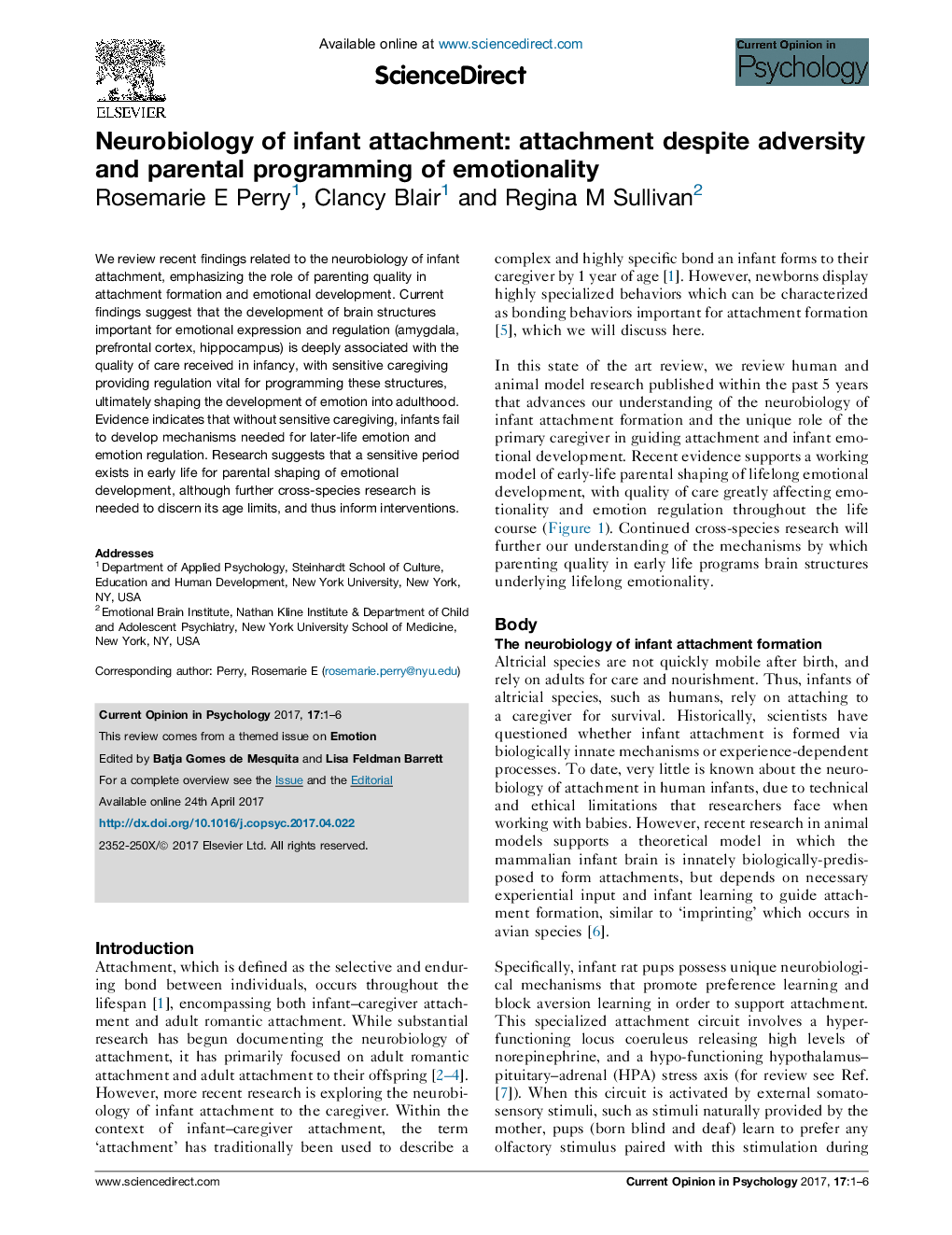| Article ID | Journal | Published Year | Pages | File Type |
|---|---|---|---|---|
| 5033402 | Current Opinion in Psychology | 2017 | 6 Pages |
â¢Infants form attachment to their caregiver despite the quality of parenting.â¢Parents program emotionality via regulation of infant physiology.â¢Parental nurturance and caregiver-infant synchrony are key to infant regulation.â¢Neglectful, intrusive, and/or unpredictable caregiving disrupts regulation.â¢Sensitive caregiving protects infant development in adverse environments.
We review recent findings related to the neurobiology of infant attachment, emphasizing the role of parenting quality in attachment formation and emotional development. Current findings suggest that the development of brain structures important for emotional expression and regulation (amygdala, prefrontal cortex, hippocampus) is deeply associated with the quality of care received in infancy, with sensitive caregiving providing regulation vital for programming these structures, ultimately shaping the development of emotion into adulthood. Evidence indicates that without sensitive caregiving, infants fail to develop mechanisms needed for later-life emotion and emotion regulation. Research suggests that a sensitive period exists in early life for parental shaping of emotional development, although further cross-species research is needed to discern its age limits, and thus inform interventions.
